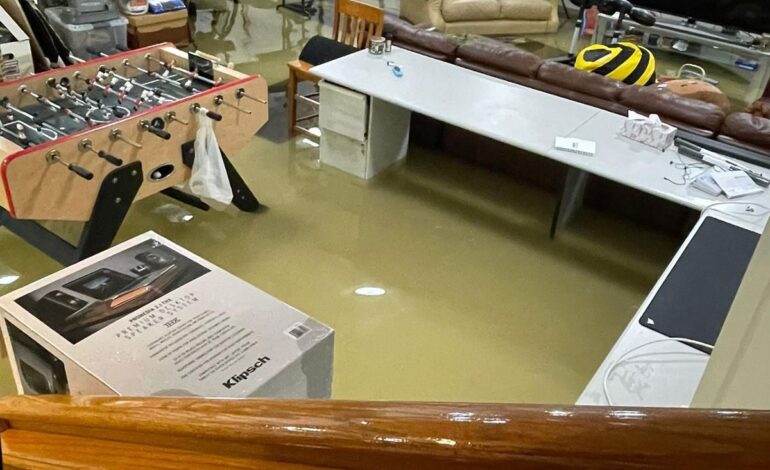DEARBORN/HEIGHTS — With residents still reeling from the devastating flooding that impacted Wayne County in June, one attorney is offering advice for dealing with insurance agencies.
Rabih Hamawi, an attorney based in Southfield, is an expert when it comes to insurance claims and property damage.
Hamawi began working as a counselor and advisor in insurance policies in 2004 before getting his law degree on the matter in 2014.
“As a specialist in property damage claims, I really don’t like the word ‘flooding,’” he said. “Of course it’s a case by case scenario, but water that comes from windows should most commonly be considered ‘storm damage’ and water that comes up from the drains is considered sewage backup. Residents need to know the difference and consequences of the different classifications.”
Residents who reside in an area deemed as a flood zone by FEMA are required to have flood insurance. In addition to flood insurance and standard homeowner’s insurance, residents can ask their insurance agents about sewage backup insurance.
There is no guarantee that any claim will be approved. — Attorney Rabih Hamawi
“If residents live in the flood zone, they have to have to have flood insurance and that’s where their claim should be filed, but flood insurance depreciates damages, so for a 3-year-old TV, the insurance company wouldn’t pay for a new TV, they’d pay for a 3-year-old TV,” he said. “Residents should follow all conditions of their policy as they could have two types of claims. They could have a flood claim for the creek or river overflowing, which would go to their flood insurance, and they could also potentially have a claim under their homeowner’s insurance under storm damage.
“Residents need to mitigate damages, document damages, prepare an inventory list of their loss, document any additional living costs if they were displaced and keep record of everything,” he said. “Most insurance agencies have a time limit of 60 days on submitting the proof of loss and if it’s not submitted timely, the claim could be forever barred.”
While most residents try to clean up and mitigate flood risk themselves, Hamawi said it’s important for them to seek outside contractors to help.
“Most people try to do all of these things on their own, but it’s important to allow companies to help in this because if not and the damages could be proven preventable, the insurance companies could deny the claims,” he said. “In 2014, 95 percent of claimants did not get a payout from the city. There is no guarantee that any claim will be approved.”
With some residents reporting issues in dropping off their assessment forms to City Hall, Hamawi said that he suggests residents do not deliver assessment forms in person.
“I recommend everyone send their assessments via certified mail and request a return receipt to prove what was sent,” he said. “If insurance companies underpay or refuse to pay, lawsuits can be filed if they have the coverage included in their policy.”
Any resident who doesn’t file an assessment form with the city by August 9 or file a proof of loss to their insurance company within 60 days of the event may be unable to to collect on their claims.






Leave a Reply